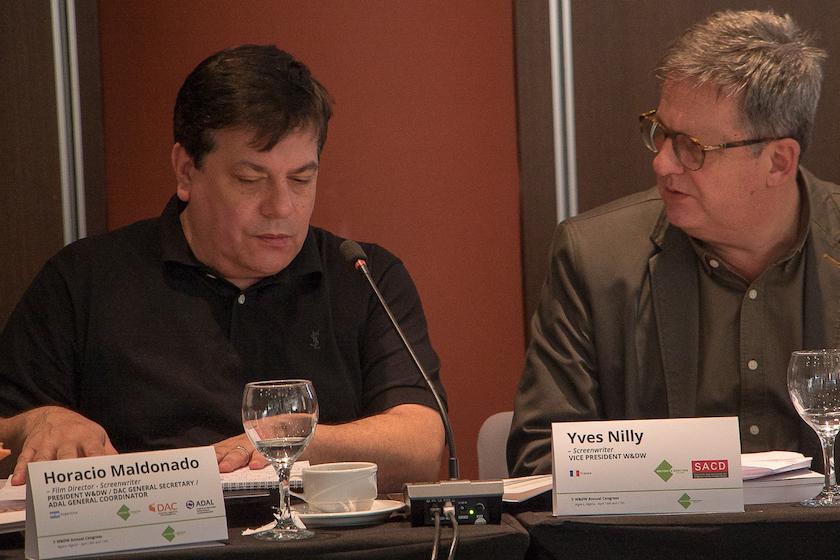Writers & Directors Worldwide builds international cooperation at annual congress in Algiers
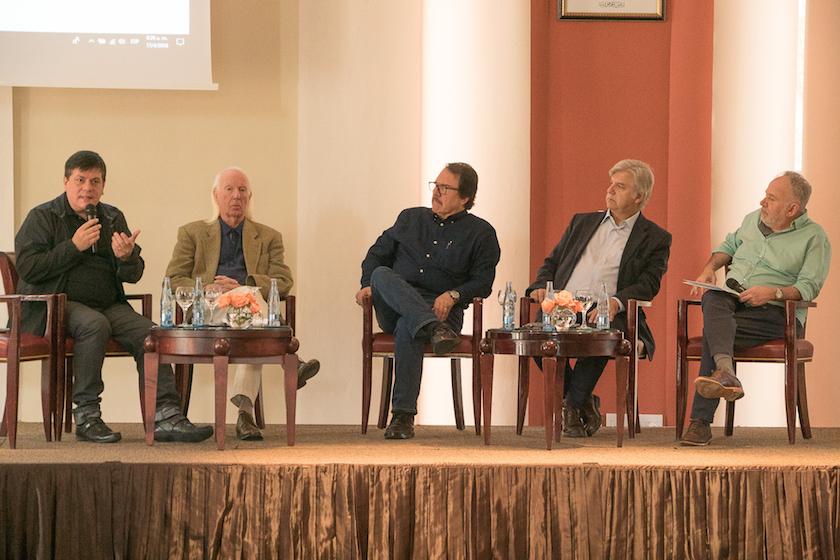
Creators from 26 countries have gathered in Algeria for the annual Writers & Directors Worldwide (W&DW) congress. W&DW is the audiovisual, dramatic and literary creators’ council of CISAC. Supported by Algerian authors’ society ONDA, the congress coincided with one of the largest celebrations of art and culture in Africa, the Salon de la Créativité.
See the photo gallery.
Algeria is at the vanguard of the fight for authors’ rights in Africa, ONDA Director General Sami Bencheikh El-Hocine noted while introducing Algerian Minister of Culture Azzedine Mihoubi and CISAC Vice President Marcelo Piñeyro. The Minister paid tribute to the role of culture in society. “Culture is the cement that makes it possible for people to communicate together through all forms of culture, art, music, dance, literature and audiovisual”. It draws people together and can be a tool to mitigate extremism. It spreads “the ideals of humanism and cultural diversity”.
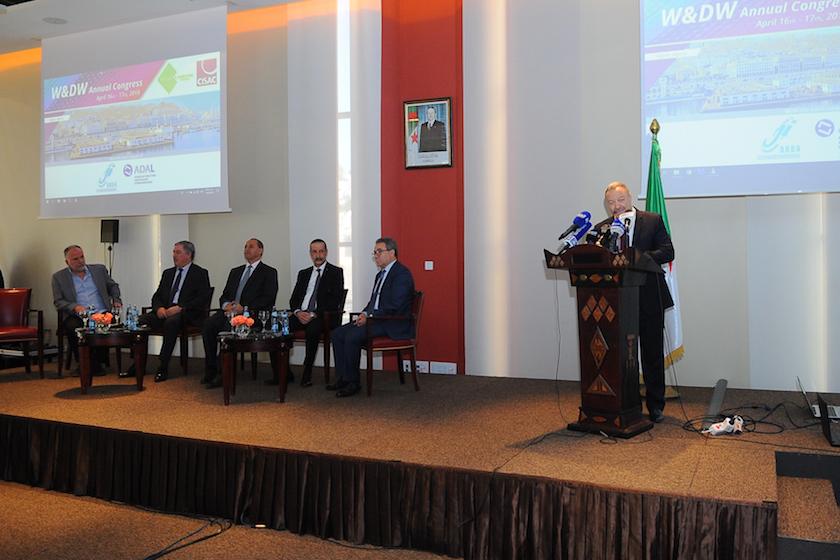
He joined Minister of Communication Djamel Kaouane and Minister of Higher Education and Scientific Research Professor Tahar Hadjar, Minister Azzedine Mihoubi in welcoming the congress’ creators on behalf of President Abdelaziz Bouteflika.
CISAC Vice President Marcelo Piñeyro pointed to the huge progress W&DW has made over the past 10 years by W&DW. A decade ago, the rights of audiovisual creators were not recognised. The establishment of regional alliances in Asia-Pacific and Latin America has unified creators. He declared: “We have a unified voice against the difficulties and challenges, which gives a ray of hope”.
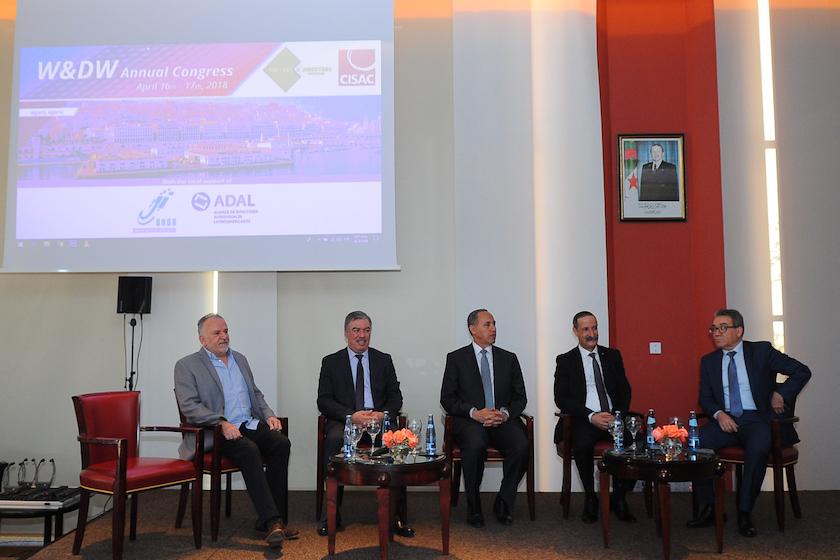
W&DW President Horacio Maldonado thanked the Algerian Minister of Culture, host society ONDA as well as CISAC Director General Gadi Oron and the Legal Department. This annual congress welcomed FERA, SAA and FSE to build mutual confidence and develop shared policies.
The congress heard an update on the dramatic, literary and audiovisual market in Africa. The continent has 37 CISAC member societies, of which 10 handle audiovisual. CISAC Regional Director for Africa Samuel Sangwa highlighted the challenges of the region, including low awareness about fair remuneration and a lack of technical expertise when engaging with users. Having authors at the forefront of the battle is vital to lobbying. This was clear at the event organised at the MASA Festival in Ivory Coast, where the internationally renowned Congolese singer songwriter Lokua Kanza helped secure government commitments to implement private copying in 2018.
Marcelo Piñeyro moderated a round table on the W&DW alliance ADAL and the situation in Latin America. DASC received its authorisation by the National Copyright Office to become a CMO established by law. DASC President Mario Mitrotti called for fellow societies to sign reciprocity agreements to improve the flow of royalties within and outside of Colombia. ATN General Director Cesar Cuadra spoke about setting rates to start collections but warned about financial challenges faced by ATN having to go to Courts of Justice to collect from users, such as cinemas.
Brazil is now key territory for lobbying on the remuneration right. DBCA President Sylvio Back described Brazil’s situation where the Ministry of Culture needs to act on legislation in order to allow audiovisual collections and distributions.
A discussion of the African music alliances also highlighted progress. PACSA has put in place ambassadors (i.e., well-known artists) in each of its countries. These authors are the engine for change. Lokua Kanza has demonstrated this in the Ivory Coast by his visit to the Minister of Communications, Digital Economy and the Post. In Cape Verde, accomplished singer songwriter Solange Cesarovna has also taken an important initiative, thanks to PACSA. On discovering that her country did not have a society to fight for her rights, she established one herself and became its President. Their first distributions took place with a large celebration, bringing together 20 authors and composers, including the country’s oldest living composer.
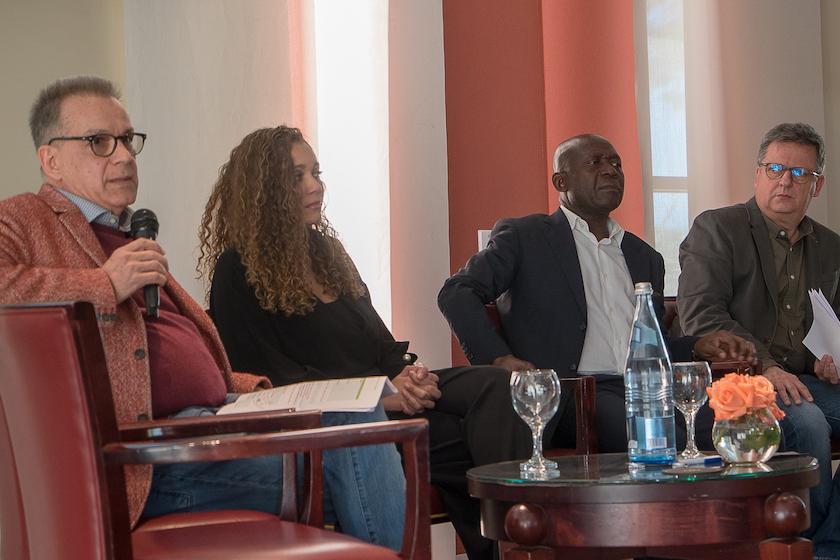
W&DW is following these examples in creating APASER and alliances. Launched in Algiers in 2017 and present at the W&DW annual congress in Venice, APASER will have its constitutive assembly soon. An Asia-Pacific alliance is on the horizon, which the Directors Guild of Japan expressed interest in supporting as well as becoming a W&DW observer.
To establish collaborative actions, FERA, FSE and SAA introduced their organisations, how to overcome common challenges and how the voice of an author is the strongest way to obtain and protect rights. Although these organisations are primarily focused on Europe, CISAC, W&DW and member societies drew attention to a willingness and readiness to come to the aide of Europe. If something changes in Europe, it can affect authors across oceans. Therefore, a unified common voice can make a difference, especially when faced by larger opposing forces.
Literary authors often are ignored and receive little in remuneration, a situation reflected by one of the greatest living Dutch playwrights, poets and scriptwriters, Judith Herzberg. ZAiKS Board Member Malgorzata Semil noted that her works received numerous awards in Portugal, yet she never received remuneration. When approached to be encouraged to claim her royalties, the author had already lost hope and gave up the fight. In response, she gave W&DW a dedicated poem entitled “The Generous Writer”.
The International Authors Forum (IAF) highlighted challenges in this sector, including lack of awareness among authors of primary and secondary rights. They don’t know they can receive money for the uses of their works, according to AKKA/LAA Executive Director Inese Paklone. When they do, they don’t seize the opportunity until it is too late. Young authors don’t understand that, while they may not need the money today, they will need it in the future for their pensions, according to Miguel Angel Diani of ARGENTORES.
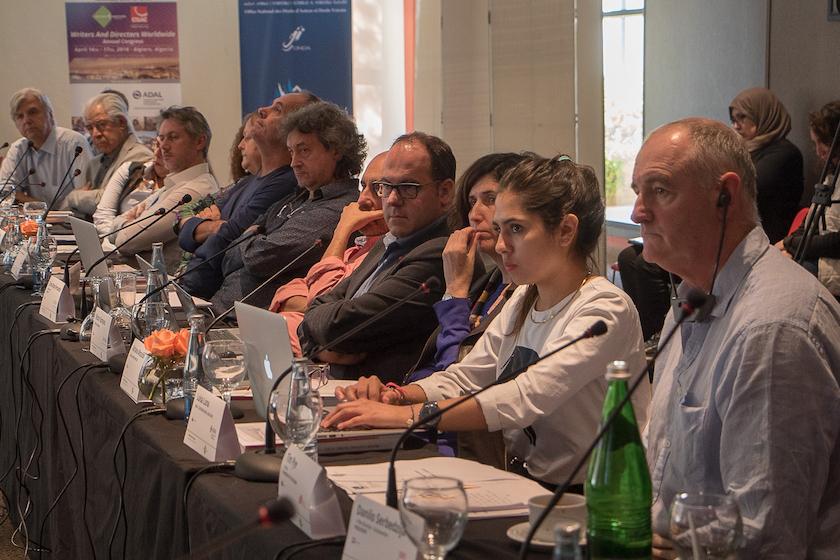
SIAE author Biagio Proietti illuminated the fight of authors in Italy in the face of a refusal for many years by SKY Italia to pay royalties. SIAE decided to go public, placing a full-page advertisement in Italian newspapers with over 1,000 creators named. This initiative showed the importance of unity by creators in responding to users’ refusal to respect their rights.
A unique glimpse into African cinema history was given by Professor Ahmed Bedjaoui. He looked at its evolution, the importance of theatres to neighbourhoods and the impact of emerging technologies (e.g., VOD).
Host society ONDA delivered a keynote by ONDA Administrator Nacera Ayaychia on behalf of Director General Sami Bencheikh El Hocine, introducing the society. ONDA is currently working to solve issues with private television channels, where only 10 channels are paying remuneration to authors. Private copying is essential to collections in Algeria, which also supports a fund for creative initiatives and supporting creators. ONDA holds 47 reciprocity conventions with societies around the world, which ensure collected money is sent to creators.
Abass Banougra, BGDA Guinea CEO, called on W&DW to help in the country, where collections for authors are held back by outdated laws and a lack of state involvement. BGDA called for international support for updating legislation, including a law on private copying.
The complexities of collection management were reviewed. RUR International Affairs Head Erik Valdes presented, outlining how private copying operates and on the difficult issue of compliance with legislation to pay foreign authors. Creators have little awareness about authors’ protections in Russia. RUR is responding by distributing information in universities and working with guilds.
A new and on-going FERA/FSE study examining the socioeconomic realities of audiovisual authors was unveiled by VG-Bild Kunst Board Member Peter Carpentier. The study shows data points across time for emerging, intermediate and established directors, screenwriters and other audiovisual authors. The first-time economic data was welcomed by W&DW, which hopes to increase global visibility of its results.
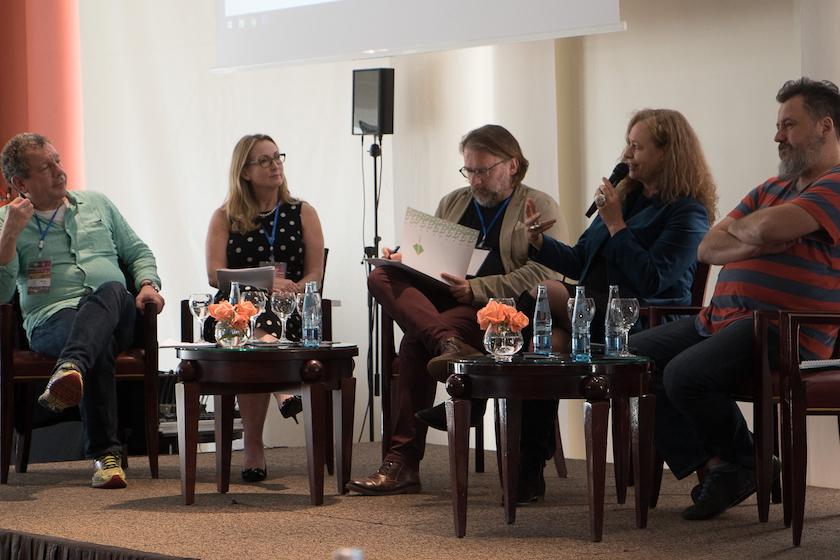
Payments by ISPs and digital services to creators were detailed by lawyer and W&DW Legal Consultant Amanda Harcourt. She looked at the experiences of other repertoires, the ways tech giants use cultural content and how these companies try to avoid properly remunerating creators for this content.
The new CISAC-commissioned audiovisual remuneration study was explained by its author Professor Raquel Xalabarder. She explained how, under current laws, authors are forced into “take it or leave it” in negotiations with producers. National and international instruments sometimes help authors in mitigating this imbalance. The most effective solution is to improve legislation globally to introduce a guaranteed right of remunerations for audiovisual creatorsss. Professor Xalabarder’s study proposes a text that could be inserted into legislation to remedy this situation.
The annual congress approached the future of technology and creative works with a discussion on blockchain. The European Union is committing €300 million to develop the technology. On April 10th, 22 European countries joined a European blockchain partnership. Directors UK Director Delyth Thomas urged creators to join initiatives in order to have a seat at the table to shape this technology for the benefit of creators.
Blockchain can be used as an audit tool for transparency, including helping authors understand and follow edits to their works, among other uses. CIAM composer Lorenzo Ferrero drew attention to Imogen Heap’s efforts and what CMOs are doing with blockchain by establishing working groups. Delyth emphasised a pressing need to be involved in blockchain’s development to avoid issues that arose when the internet first came to the fore for creators.
The congress concluded with several decisions taken to create letters of support and actions for Croatia, India, Brazil and Guinea. An open letter urging European Ministers of Culture to adopt the audiovisual remuneration right was also decided upon. W&DW will also actively urge societies in signing reciprocity agreements with fellow societies to improve the flow of royalties to authors.
